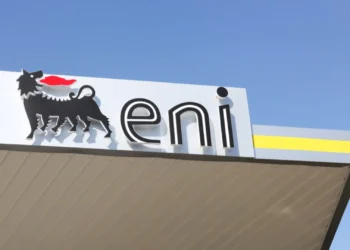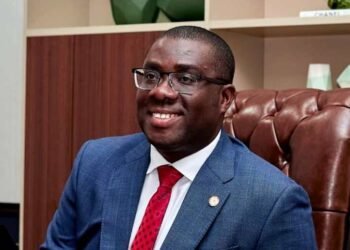Taiwan’s Chief Trade Representative, John Chen-Chung Deng has disclosed that his country’s semiconductor makers will expand production in the U.S. as much as they can afford to do so. However, he insisted that Taiwan remains an ideal place for that production and other U.S. trade, business and investment, despite tensions with China.
John Chen-Chung Deng spoke to reporters on a visit this week to Washington, where he is leading a Taiwanese trade delegation and meeting with U.S. trade officials.
Deng’s visit comes at a time of intensifying efforts to harden the U.S. and Taiwanese militaries and economies against any threat from rival China. As part of this, President Joe Biden and Congress are moving to boost semiconductor production on U.S. soil in the event of any conflict disrupting exports from Asia, especially from Taiwan.

Semiconductors make electronics ranging from phones to electric cars to advanced weapons run, and Taiwan produces more than 90% of the world’s more advanced semiconductors.
At the same time, Pentagon leaders have been touring the Indo-Pacific to rally regional allies in bolstering military defenses and deterrence. A House committee last month war-gamed a hypothetical attack by China on Taiwan and U.S. positions as part of a bipartisan congressional effort to find specific ways to boost deterrence.
Deng said that Americans should see these efforts as ensuring that Chinese President Xi Jinping will never feel confident enough to invade Taiwan, which China claims as its own.
“We should avoid any exaggeration or rhetoric which doesn’t reflect the true situation, that creates fear … unnecessary fear,” Deng averred.
Deng added that the U.S. business community in Taiwan assures him it is still expanding and hiring. He cited the experienced workforce and support industries that Taiwan offers for semiconductor producers and for Google, Amazon and other U.S. businesses on its soil.
Relations between the U.S. and China have hit dramatic peaks in tensions over the past two years as Xi’s government asserts China’s growing strength economically, diplomatically and militarily. That includes China underscoring its broad territorial claims in the region.

China, for its part, accuses the U.S. of meddling in its internal affairs and pursuing a containment strategy against China to prevent its rise.
The Biden administration and Republicans and Democrats in Congress broadly support strengthening the U.S. and Taiwanese positions in the region to discourage any Chinese invasion of the island.
Taiwan Semiconductor Manufacturing Corp. Building Chip Plant In Arizona

Meanwhile, the Biden administration is promising tens of billions of dollars to support construction of U.S. chip foundries and reduce reliance on suppliers in Taiwan and elsewhere in Asia, which Washington sees as a security weakness.
Heeding to that call, Taiwanese chip giant, Taiwan Semiconductor Manufacturing Corp. is building a chip plant in Arizona and plans a second, for a total investment of $40 billion.
Without formal relations and the kind of a tax treaty that the U.S. has signed with friendly nations that it recognizes, Taiwanese workers in the U.S. have to pay taxes in both the U.S. and Taiwan. Deng stated that he hopes for resolution of the tax issue before that first Taiwanese plant starts operation in Arizona, given the double-tax burden the operation will face.
“Once they start to produce, this is a real problem,” the trade official said.
Taiwanese officials also hope in coming weeks to close an initial trade agreement with Washington, in a nod toward the free-trade pacts the U.S. has negotiated with South Korea and other allies.
U.S. worries about angering China have helped keep Washington from signing a free-trade pact with Taiwan in the past. Deng argued that the hoped-for U.S. trade agreement would boost the confidence of Taiwan and encourage other allies to increase trade with Taiwan as well.
That would help Taiwan lessen its economic dependence on trade with China, now the customer for 35% to 40% of Taiwan’s products, Deng said.
READ ALSO: Russia Claims Kyiv Sent Drones To Hit Kremlin, Ukraine Denies It




















